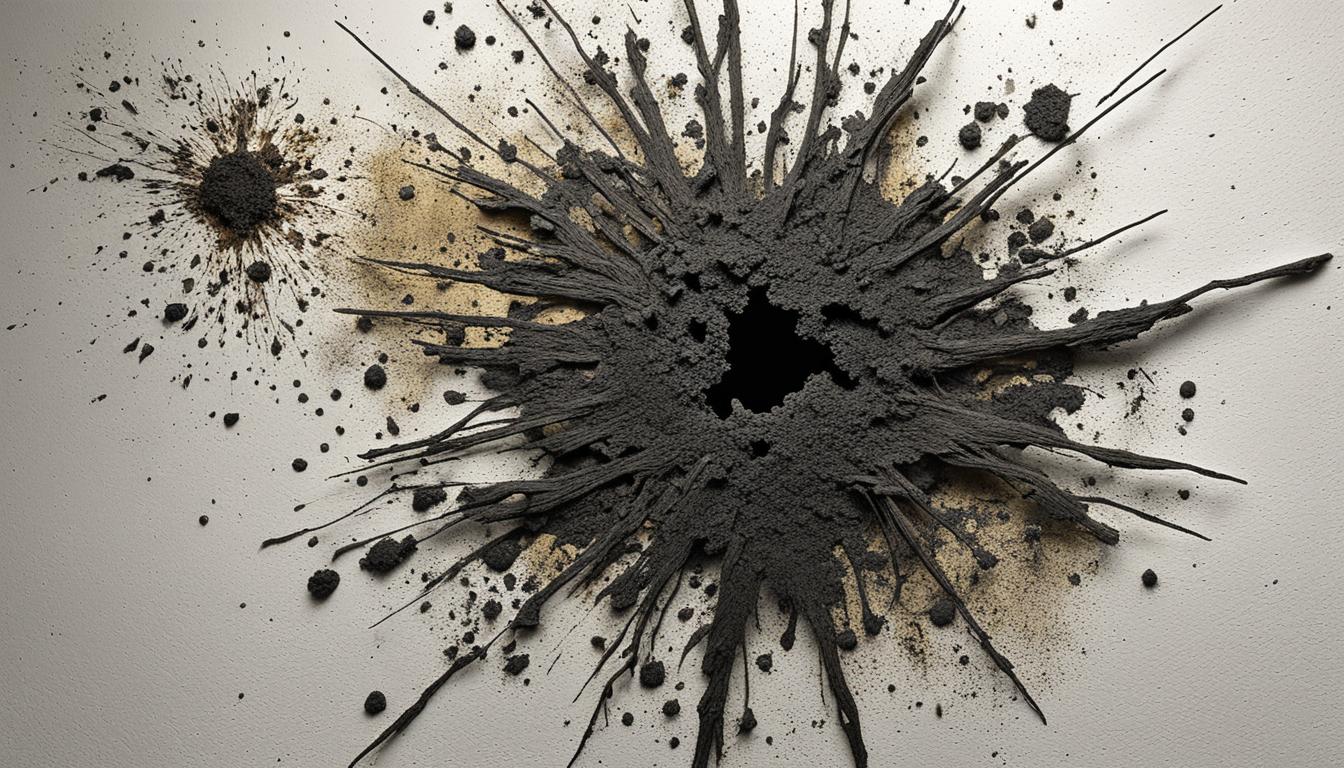
Navigating Through the Challenges of what does black Mold smell like
Black mold, also known as Stachybotrys chartarum, is a common concern for homeowners and property owners alike. In addition to its unsightly appearance, black mold can also cause various health issues. However, one of the key features that sets black mold apart is its distinct smell. Understanding what black mold smells like can help you identify its presence and take necessary actions to maintain a healthy indoor environment.
Key Takeaways:
- Recognizing the smell of black mold is crucial for identifying potential growth.
- Black mold emits a musty and pungent odor that can permeate the affected area.
- Regular inspections, proper ventilation, and moisture control are essential for preventing black mold and its associated odors.
- Promptly addressing black mold issues is vital to safeguarding your indoor environment and promoting a healthier living or working space.
- Consulting a professional mold remediation service can help eliminate black mold and prevent its recurrence.
Recognizing the Smell of Black Mold
When it comes to maintaining a healthy indoor environment, identifying the presence of black mold is essential. One of the key indicators of black mold growth is its distinctive odor. By recognizing the peculiar smell emitted by black mold, you can take prompt action to address the issue and protect your home or commercial property.
Black mold odor is often described as musty, damp, and earthy. It has a pungent and stale quality that is hard to ignore. If you notice a persistent, unpleasant smell in certain areas of your property, it may be indicative of black mold growth.
Familiarizing Yourself with the Unique Odor
Understanding the specific characteristics of the smell emitted by black mold can help you differentiate it from other odors and identify potential mold hotspots. Some common features associated with black mold odor include:
- Strong, damp smell: Black mold odor is often stronger in enclosed spaces, near sources of moisture, or areas with poor ventilation.
- Musty and earthy scent: The scent is reminiscent of damp soil or decaying organic matter.
- Distinctive and lingering: Unlike temporary odors caused by spills or cooking, black mold odor tends to persist and intensify over time.
If you suspect black mold growth in your property, it is crucial to take immediate action to prevent further damage and potential health risks. Consulting with a professional mold remediation specialist is recommended to assess the severity of the issue and implement appropriate measures.
Note: It is important to remember that while recognizing the smell of black mold is helpful, it is not the sole method for confirming its presence. Physical signs such as visual mold growth, water damage, or allergic reactions in occupants should also be taken into consideration.

By familiarizing yourself with the unique smell of black mold, you can proactively identify potential mold infestations and take swift action to mitigate the problem. However, it is crucial to employ professional assistance to ensure safe and effective mold remediation.
Ensuring a Healthy Indoor Environment
In order to maintain a healthy indoor environment and prevent the growth and spread of black mold, it is crucial to prioritize certain strategies that focus on maintaining indoor air quality and controlling moisture levels. By implementing these preventive measures, you can effectively reduce the risk of black mold growth and the associated health hazards.
Regular Inspections
Regular inspections of your home or commercial property are essential for early detection of any moisture issues or signs of black mold growth. These inspections should encompass both visible areas and hidden spaces, such as crawl spaces, basements, and attics, where moisture tends to accumulate. Engaging the services of a professional mold inspector can provide a thorough assessment and help identify potential problem areas.
Proper Ventilation
Adequate ventilation plays a vital role in maintaining indoor air quality and preventing moisture buildup. Proper ventilation systems should be in place in areas prone to high humidity, such as bathrooms, kitchens, and laundry rooms. Additionally, ensuring sufficient airflow throughout the entire property can help minimize the potential for mold growth.
Moisture Control
Controlling moisture levels is paramount when it comes to preventing black mold. Here are a few effective moisture control methods:
- Fix any leaks or water damage promptly to prevent prolonged moisture exposure.
- Use dehumidifiers in areas where humidity levels are consistently high.
- Ensure proper drainage around the foundation of your property to redirect water away.
- Maintain appropriate indoor temperature and humidity levels to discourage mold growth.
Conclusion
In conclusion, promptly addressing black mold issues is crucial for maintaining a healthy indoor environment. By understanding the distinct smell of black mold, homeowners and property owners can be proactive in identifying potential growth and taking appropriate action.
Recognizing the signs of black mold and its characteristic odor can serve as an early warning system for potential health hazards. Taking immediate steps to mitigate mold growth, such as repairing leaks, improving ventilation, and controlling moisture levels, can help prevent further damage and protect the well-being of occupants.
By prioritizing regular inspections and implementing preventative measures, individuals can safeguard their living or working space from the detrimental effects of black mold. Maintaining good indoor air quality is paramount, as it not only contributes to a healthier environment but also helps preserve the integrity of the property.
Remember, a proactive approach is vital when dealing with black mold. By promptly addressing any signs of mold growth and taking appropriate action, you can ensure a safe and healthy indoor environment for yourself, your loved ones, and anyone who enters your premises. Don’t underestimate the power of understanding and recognizing the distinct smell of black mold.




